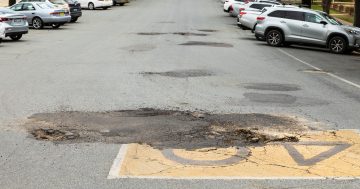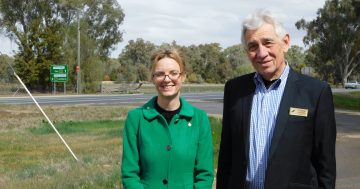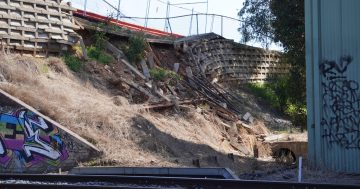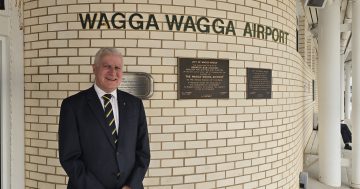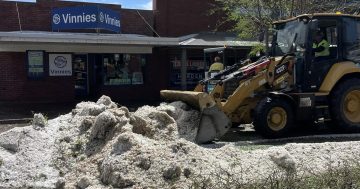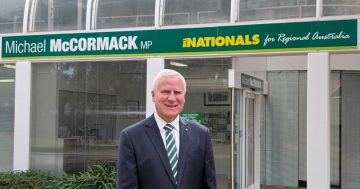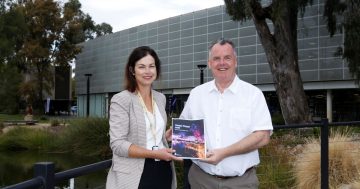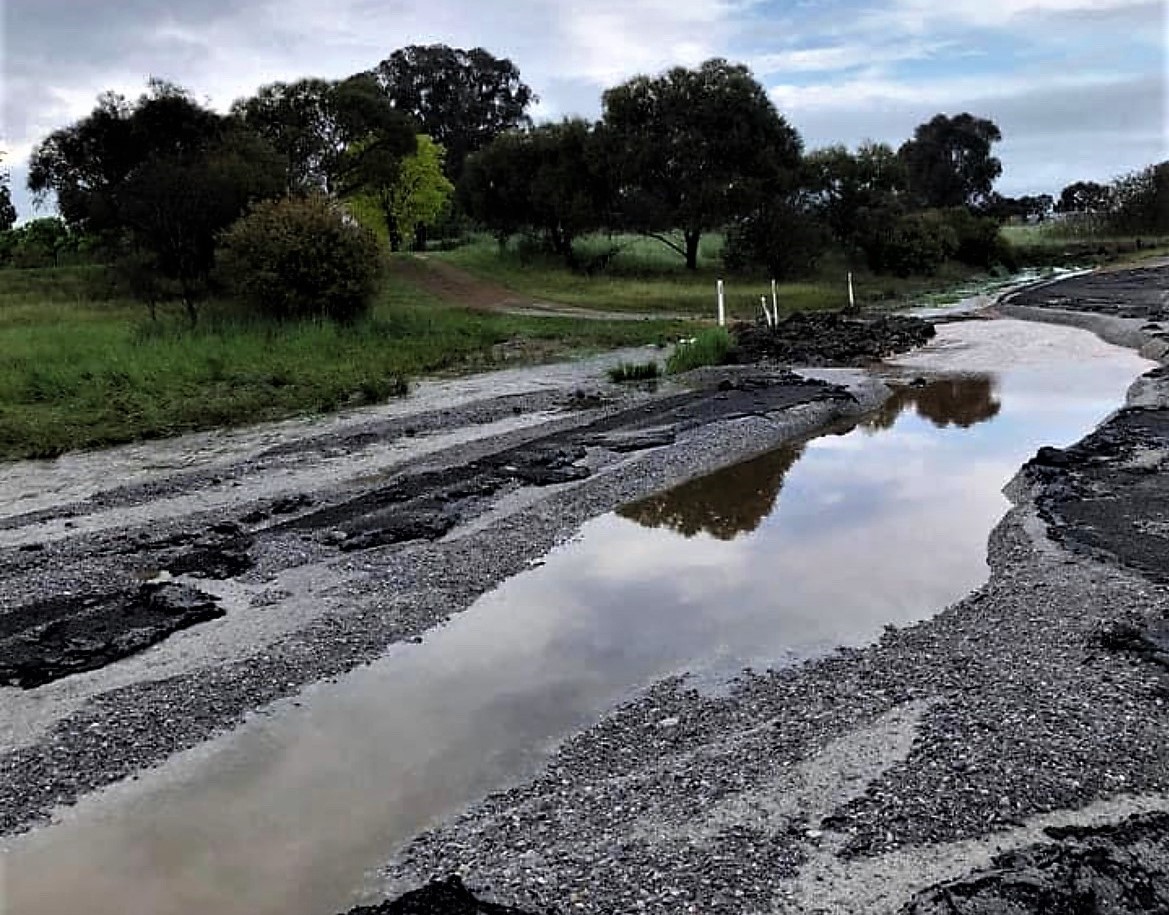
Last week’s federal budget offered little in the way of hope for roads connecting rural and regional communities throughout the state. Photo: Acadia Blom.
Labor has “ripped the heart out of the agriculture industry”, says Member for Riverina Michael McCormack in response to the Federal Government’s brush-off to his call for investment in disintegrating NSW rural and regional roads.
Just weeks ago Mr McCormack beseeched the Labor Government to provide emergency funding to help restore road infrastructure for weather-impacted communities not only in his seat, but across the nation.
But, Mr McCormack said, Labor in its October mini-budget last week allocated just $250 million to the Local Roads and Community Infrastructure (LRCI) program, adding to the $500m allocated by the Coalition government in its 2022-2023 budget, handed down in March.
He described the outcome as devastating.
“Many roads have been improved through the LRCI program, which I started as deputy prime minister, including Wagga Wagga’s Kooringal Road, which received a badly needed upgrade with the help of $2m from the LRCI program,” Mr McCormack said.
He said it was clear, from the budget allocation, the Government was winding down the successful LRCI program, through which the Coalition invested $3 billion into local government areas throughout Australia at a time when the need to inject money into flood and rain-damaged rural and regional roads has never been greater.
On his calls for emergency funding, Mr McCormack said, “there is nothing planned to specifically help agriculture through the flooding crisis”.
This comes as most of NSW, Victoria, parts of Queensland and South Australia sustain road and rain damage due to prolonged flooding events.
Labor, he said, had cancelled $2.8b of our infrastructure commitments and delayed funding on a further $6.5b of projects.
“Regional communities miss out yet Melbourne gets $2.2b for the Suburban Rail Loop and Canberra gets money for light rail,” Mr McCormack said. “It is not good enough.
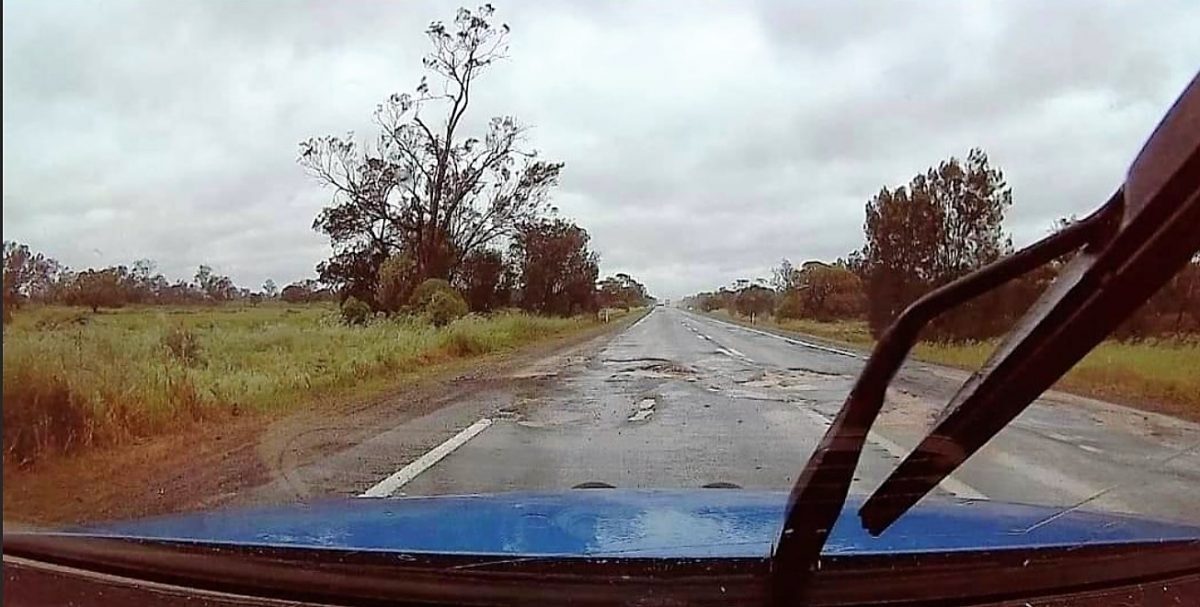
Dashcam footage showing a badly damaged section of the Sturt Highway. Photo: Karen Butler.
“Overall, this is a devastating budget for regional Australians, including throughout the Riverina and Central West. Labor is creating a two-tiered society where country communities have been left behind.”
GrainGrowers chair Brett Hosking said the spending gap left many growers without access to safe and effective transport systems.
“For growers in areas affected by recent weather events and those in parts of the country where fortunately they are still looking at a promising harvest, efficient freight routes to get our clean and green grains off the farm safely to where they need to go is essential,” Mr Hosking said.
“We recognise that the Albanese Government is trying to ensure spending is curbed, particularly in the current economic environment with rising inflation and spiralling costs of living.
“However, our growers and the regional communities they live in can’t be left behind when critical infrastructure is in such dire straits.”
But hope looms in the form of a $50m NSW Government undertaking to help regional and rural councils fix the increasing number of potholes brought on by this year’s extreme wet weather.
Minister for Regional Transport and Roads Sam Farraway has said that under the new Fixing Local Roads Pothole Repair Round, councils can apply for funding to help them address their highest-priority pothole repairs.
But they’ll have to be quick, as applications for funding are open for two weeks from 25 October, funding announced in November so councils can begin work as soon as possible.
Original Article published by Edwina Mason on About Regional.







